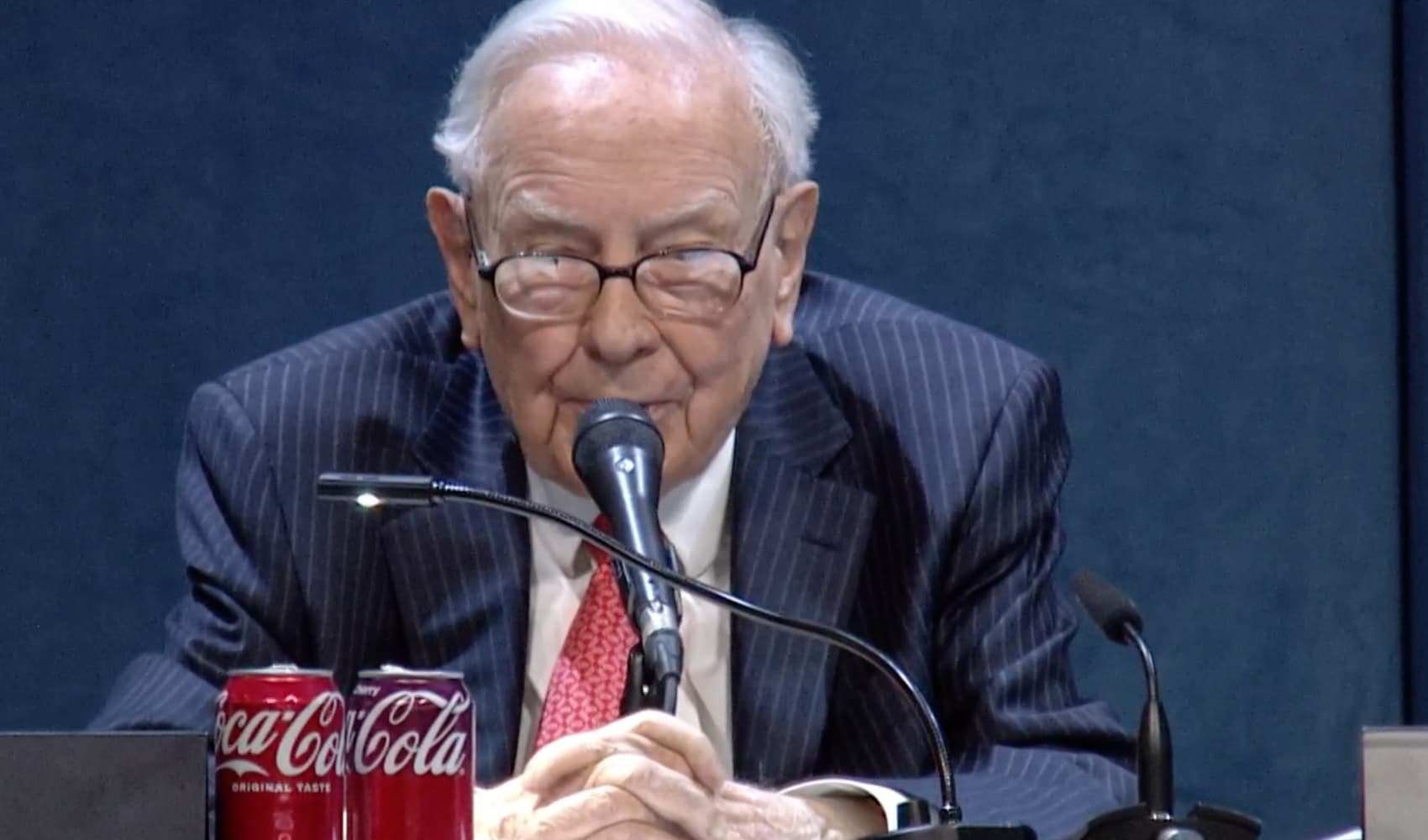Workplace Success: Stop Chasing "Best," Says AT&T Exec
Stop Chasing "Best Performer" Status: AT&T Exec's Surprising Career Advice
Introduction: Rethinking Workplace Success
We've all been there, right? The constant pressure to be the *best*. The top performer. The star of the show. But what if chasing that singular title is actually holding you back? Robert Walters, a senior vice president at AT&T, suggests a surprising alternative: aim to be *among* the top performers, not *the* top performer. Sounds counterintuitive? Let's dive in and explore why this mindset shift can unlock a whole new level of success, both for individuals and teams.
The Pitfalls of "Best Performer" Obsession
Striving to be the absolute best can create a hyper-competitive environment, leading to several negative consequences. Think about it – are you really helping your team if you're constantly trying to outshine everyone else?
Competition vs. Collaboration
Imagine a sports team where every player is solely focused on scoring the most points. Would they win many games? Probably not. True success comes from collaboration, from leveraging each other's strengths and supporting weaknesses. The "best performer" mentality can stifle this crucial teamwork.
Burnout and Stress
The constant pressure to outperform others is exhausting! You're always on edge, worrying about mistakes, and comparing yourself to your colleagues. This can lead to burnout, increased stress levels, and a decrease in overall job satisfaction. Is that "best performer" title really worth sacrificing your well-being?
Tunnel Vision
When you're laser-focused on being the best, you might miss out on opportunities to learn, grow, and innovate. You're so busy trying to maintain your top spot that you become resistant to new ideas or feedback. This can limit your potential and prevent you from reaching your full potential. Think of it like a racehorse with blinders – you're fast, but you can only see what's directly in front of you.
The Power of "Among the Top"
So, if not the "best," then what? Walters suggests aiming to be *among* the top performers. This subtle shift in mindset can have a profound impact.
Creating Achievable Benchmarks
Walters emphasizes that this approach helps leaders create more realistic and attainable goals for their teams. Instead of setting an impossibly high bar for everyone, focus on creating a culture where everyone can thrive and achieve their individual potential. It's about progress, not perfection.
Fostering a Supportive Environment
When the pressure to be *the best* is removed, colleagues are more likely to support each other. Instead of viewing each other as competition, they can collaborate, share knowledge, and celebrate each other's successes. This creates a more positive and productive work environment.
Promoting Self-Fulfillment
As Walters notes, giving employees "milestone achievements" ensures they feel self-fulfilled. This sense of accomplishment is a powerful motivator, leading to increased engagement, productivity, and job satisfaction. It's about recognizing and celebrating progress, not just reaching the finish line.
Walters' Personal Transformation
Walters himself admits to initially embracing the "best performer" mindset early in his career. However, he realized that this approach wasn't effective when leading a team.
The 2011 Turning Point
The pivotal moment occurred in 2011 when Walters was a director. [Content truncated - need more information from the original text]. However, the key takeaway is that he learned firsthand that individual success doesn't always translate to team success.
Shifting Leadership Styles
His experience underscores the importance of adapting your leadership style to the needs of your team. What works for an individual contributor might not work for a team leader. Effective leaders focus on empowering their team members, not outshining them.
Practical Steps to Implement This Mindset
So, how can you practically apply this "among the top" philosophy in your own workplace?
Focus on Collaboration
Actively seek out opportunities to collaborate with your colleagues. Share your knowledge, offer assistance, and celebrate their achievements. Remember, teamwork makes the dream work!
Set Realistic Goals
Work with your manager to set realistic and achievable goals. Don't try to be everything to everyone. Focus on your strengths and areas where you can make the most impact. Prioritize progress over perfection.
Embrace Learning and Growth
View your workplace as an opportunity to learn and grow. Seek out new challenges, attend training sessions, and ask for feedback. The more you learn, the more valuable you become to your team.
Celebrate Successes – Big and Small
Acknowledge and celebrate the successes of your colleagues, both big and small. A simple "thank you" or "great job" can go a long way in fostering a positive and supportive work environment. Recognition is a powerful motivator.
Promote a Culture of Feedback
Create an open and honest environment where team members feel comfortable giving and receiving feedback. Constructive feedback is essential for growth and improvement. Don't be afraid to ask for help or offer suggestions.
The Long-Term Benefits
Adopting the "among the top" mindset offers numerous long-term benefits for both individuals and organizations.
Increased Productivity
A collaborative and supportive work environment leads to increased productivity. When team members feel valued and empowered, they are more likely to be engaged and motivated. Happy employees are productive employees.
Improved Employee Retention
When employees feel like they are part of a team and that their contributions are valued, they are more likely to stay with the company. Reducing employee turnover saves time and money.
Greater Innovation
A diverse and collaborative team is more likely to generate innovative ideas. Different perspectives and experiences can lead to creative solutions. Innovation is essential for staying competitive.
Conclusion: A New Path to Success
Robert Walters' advice to aim to be "among the top performers" rather than "the best performer" offers a refreshing perspective on workplace success. By shifting our focus from individual achievement to team collaboration and support, we can create a more positive, productive, and fulfilling work environment. So, ditch the competitive mindset and embrace the power of teamwork. You might be surprised at what you can achieve together.
Frequently Asked Questions
Here are some frequently asked questions about the "among the top" approach to workplace success:
- Q: Does this mean I shouldn't strive for excellence?
Not at all! Striving for excellence is still important. The key is to focus on personal growth and contribution to the team, rather than solely on outperforming others. Aim to improve, learn, and contribute meaningfully, not just to be better than your colleagues.
- Q: What if my company culture is highly competitive?
Even in a competitive environment, you can still focus on collaboration and support. Lead by example. Offer assistance to your colleagues and celebrate their successes. You might inspire others to adopt a more collaborative approach.
- Q: How can I measure my success if I'm not focusing on being "the best"?
Focus on measurable goals related to your individual contribution to the team's success. Track your progress, seek feedback, and celebrate your achievements along the way. Your value lies in your ability to contribute to the collective good.
- Q: Is this approach applicable to all industries?
While specific tactics may vary, the underlying principle of collaboration and support is applicable to virtually all industries. Whether you're in tech, finance, healthcare, or education, teamwork is essential for success.
- Q: How do I address concerns that I am not ambitious enough if I don't strive to be the "best"?
Frame your ambition around contributing significantly to the team's overall goals and exceeding expectations through collaboration and innovative problem-solving. Demonstrate your commitment to the company's success by taking initiative and proactively seeking opportunities to improve processes and outcomes, rather than solely focusing on individual accolades.









